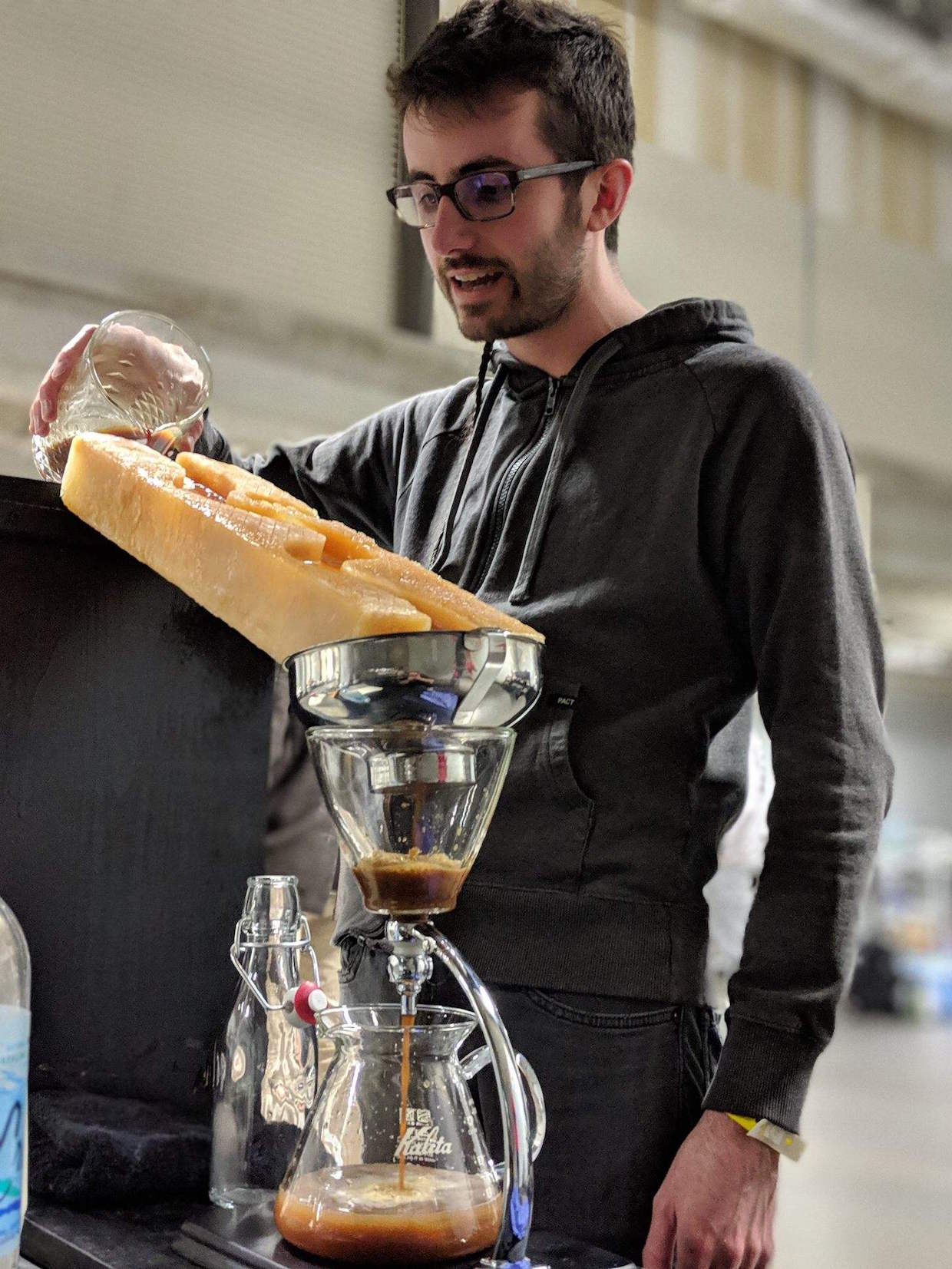Being a barista can be one of the most challenging jobs in the hospitality industry. It often requires waking up hours before sunrise; dealing with finicky, complex and messy equipment; and using motor skills and hand-eye coordination to freshly prepare hot beverages and food to exacting standards in high-volume environments.
Of course, baristas are expected to do all this with a smile, despite the inevitable presence of customers who may be rude, impatient or downright harassing in any given shift. The standard hospitality model in the United States — where good service is rewarded most prominently through tips from customers, rather than through higher wages or better benefits — further stretches this dichotomy between the demands of the job, both physically and emotionally, and the persona a barista is expected to project.
The Barista Burden
There’s a very real dark side to all this. In an article last year, Knowable Magazine used the term “Barista’s Burden” while exploring some common side affects associated with forced emotions in the workplace.
“Psychologists warn that emotions can’t just be flipped on like an espresso machine, and smiles aren’t as easy to put on as name tags,” author Chris Woolston wrote.
One of the story’s main sources, Dr. Alicia A. Grandey, is a professor of psychology at Penn State University, where she has dedicated much of her research to examining this dilemma. She argues that baristas who provide “service with a smile” and undergo the barista burden suffer negative physical and emotional consequences that have not to this point been widely understood.
Grandey worked at Starbucks while completing her Master’s Degree, becoming all too familiar with the realities of this burden. In a 2004 study, she explored how the notion that “the customer is always right” can be detrimental to an employee’s physical and mental health. In additional studies, Grandey and her research colleagues found that amplifying positive emotions while suppressing negative emotions in the workplace can cause long term negative side affects such as insomnia, anxiety, depression and exhaustion.
Most recently, Dr. Grandey led research published in March that revealed that service workers who fake positive emotions consume alcohol more on a regular basis.
“America’s ‘service with a smile’ norms may be exactly what invites such behavior… It communicates friendliness and affiliative motives, rather than professionalism and efficiency motives,” Grandey recently told Daily Coffee News. “I was just in Italy, and there the baristas are so professional and businesslike. There is no idle chit-chat, no forced smiles. You walk up to the bar, order; and they are brisk, efficient, and the customers do not tend to share their problems or even small talk with baristas.”
The Customer is Not Always Right
There are many ways in which business owners can avoid worsening this burden on baristas while also meeting or exceeding the expectations of customers, according to Grandey. For starters, businesses can set the tone and culture for their establishment by communicating expectations to customers.
“A high-emotion service job does not give customers the right to violate norms of ethical treatment,” Grandey said, noting that baristas should always be granted room for autonomy and self-value in their jobs, while customers should be more readily held accountable for their words and actions. This cannot be achieved without the support of managers and owners, who should not ask baristas to forfeit their personal or social rights in the name of customer service with a smile.
Said Grandey, “The customer is not always right and should not assume that he/she is regardless of his/her behavior.”
How to Deal
DCN reached out to several professional baristas to see how they deal with this dichotomy between customer service expectations and autonomy — or simply how they might find healthy ways to deal with the physical and/or emotional stresses that come naturally while working the bar.
Samuel Louis Schaefer, the owner of Ann Arbor, Michigan’s Mockingbird Coffee and a longtime barista competitor, suggested that one way to mitigate the barista burden is to prevent burnout caused by repeating any customer-facing task for too long a time.
“We had to learn how to float through stations — and we tried our best to take care of each other by checking in as much as possible,” he said. “I made it my goal to do whatever job people didn’t want to do.
Schaefer described a system he and his staff devised that allowed baristas to rotate positions when they recognized a problematic customer.
“We had to create a code,” Schaefer said. “We started to know what customers were coming in and who they were targeting. This code allowed us to switch stations, or let someone do tasks in the back of the store when certain [problematic] customers came in.”
Schaefer also offered some tips on dealing with customer-related fatigue when outside the shop. “Decompression was a huge necessity,” he said. “I would swim laps in the local pool and relax in the sauna to meditate. I am an extroverted person, but often needed to eat alone and recline into my room to sleep or watch Netflix.”
Emilia Martinez, manager of Klatch Coffee in San Francisco and a barista for more than six years, underscored the importance of management in creating a healthy work environment for baristas.
“Making sure [my staff] feel validated in their feelings is important to me,” she said. “The best managers I’ve had always see eye to eye when problems occur — knowing I could come to them with issues and know they wouldn’t tell me ‘the customer is always right,’ because the customer isn’t always right.”
Like Schaefer, Martinez described the importance of not taking the emotional burdens of work home with you. “Walking out of the shop, taking a deep breath and blasting my favorite jams on my way home helps me remember my life is so much more than what those interactions can sometimes lead me to believe,” she said. “I always remind myself that despite how stressful some days can be, they always end.”
[Editor’s note: This story has been updated. An original version incorrectly referred to the author of the Knowable Magazine piece as Chris Woolten. The author’s name was Chris Woolston.]
Craig Batory
Craig Batory is a writer, marketer and coffee professional working and
living in Detroit.
Comment
2 Comments
Comments are closed.
















As someone who has several years of barista experience under her belt…this is such a validating piece.
I have a lot of happy memories working at cafes. I also have a lot of ugly ones, and quite a few came from customers.
What is it Sam doing / using in that photo? We’re so curious!